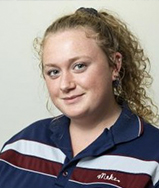What does it really mean to be pro- or anti-something — and what’s at stake when we remain neutral? Dr. Nicholas Pearce, Clinical Professor of Management & Organizations at Northwestern University Kellogg School of Management, addressed this topic in depth during a virtual Founders’s Fireside Chat, “Beyond Diversity: Executive Strategies to Accelerate Inclusion, Equity and Sustainable Impact.” During the May 11 event, hosted by Make It Better Media Group and moderated by founder and chief visionary officer, Susan B. Noyes., Pearce shared insight and strategies to speed up the prioritization of equity and inclusion in the business world.

Pearce zeroed in on the concept of being anti- or pro-anything — such as being anti-racist, and noted that neutrality can lead to the perpetuation of the status quo.
“There is a difference between not being actively and intentionally prejudiced on racial grounds and being actively anti-racist. Being intentionally anti-racist is making a decision to be part of the solution,” Dr. Pearce said. In absence of that decision to act, the status quo remains unchallenged and perpetuates the years-long history of under-serving and under-recognizing people and employees from marginalized communities.
How companies choose to navigate this can be broken down into three steps, Dr. Pearce noted.
- Workforce diversity: Has the company removed barriers to employment and is the hiring process from start to finish bias free?
- Workplace inclusion: How will employees be treated once they are on the team? Will there be even more barriers once inside the company culture and can it be navigated?
- Market place and community: What happens beyond the walls of the organization? Are the people who you partner with and who represent your company in-tune with your DEI initiatives?
When asked by Noyes whether there was one standout company doing the work and doing it right, Dr. Pearce’s answer was one that came after consideration. While it may be rudimentary for organizations to hit one or some of their company-wide DEI initiatives, it has proven to be a challenge to cohesively hit all. However, he named Ben and Jerry’s as a company that has come close to such a feat.
“If you were to ask Ben and Jerry’s — which I have — about their organization they would say, ‘We are not an ice cream company, we are a social impact company that happens to make really delicious ice cream,’” Dr. Peace said. And while they may actively voice their stances on often-controversial concepts that disrupt the social conversation, there is still a lack of diverse employees in their Vermont-based company.
Much like Ben and Jerry’s, however, the corporate social responsibilities that organizations take on cannot be all talk. Dr. Pearce elaborated that — and to no surprise — companies who “parachute” into their respective communities they are trying to uplift, do little in the way of tangible change. Printing t-shirts and conjuring photo-ops is not enough, it is about investing in changing outcomes. “Activity is one thing, impact is another,” he said.
One of the final topics of discussion was that of commitment and collaboration. In the age of technology, both Noyes and Dr. Pearce commented that it is all the easier to connect but that does not always equate real unison. “Collaboration is a terrific, constructive disrupter. And the internet makes that easier than ever,” said Noyes. While agreeing, Dr. Pearce went further to note the distrust often synonymous with virtual collaboration. “Once trust is established through proximity and consistency, then technology can be a great tool to sustain a relationship.”
Dr. Pearce — who last year launched his book “The Purpose Path,” meant to enlighten readers about navigating their career and finding true fulfillment in doing so — will head an executive education class at the Northwestern University Kellogg School of Management titled “Beyond Diversity: Executive Strategies for Constructive Disruption.” The class, held June 21 – 24, will empower leaders and their teams to implement proven strategies within their own workforce through bold action that will, with time and dedication, create meaningful change.
“We recognize that while individual leaders can make amazing impact, that most often, major strides in organizational life are done collaboratively,” said Dr. Pearce. After all, that is the aim of these organizations, to “be anchored in love of people, which is what philanthropy means.”
For more information or to sign up for the class, visit the “Beyond Diversity: Executive Strategies for Constructive Disruption” website.
Watch the full discussion below:
More from Better:
- Not Stopping Us: Gilead House Helps Single Moms Through the Pandemic
- Assistance League of Diablo Valley Celebrates 55 Years of Service: Organization’s Philanthropic Programs Focus on Student Support and Community Needs
- 7 Women Winemakers in California Forging a Better, Brighter Future With Sustainable Viticulture

Margaret Smith is a Chicago-based writer and editor with a passion for socio-political storytelling about their community. They are a graduate of Columbia College Chicago.

